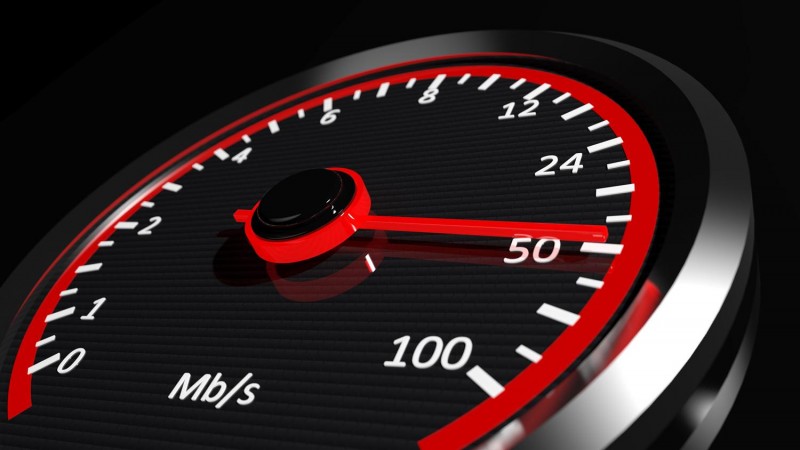
In today's fast-paced digital landscape, having a website that loads quickly is crucial for both user experience and search engine optimization (SEO). A slow-loading website can lead to frustrated visitors and lower search engine rankings, impacting your online presence and business success. In this article, we'll delve into effective strategies to enhance your website's loading speed, ensuring a seamless user experience and improved SEO performance.
When a visitor clicks on your website's link, the last thing you want is for them to be met with a sluggish loading experience. A fast-loading website not only retains visitors but also positively influences your SEO efforts. In this guide, we'll explore practical steps to accelerate your website's loading speed, bolstering your online presence and SEO rankings.
Why Website Loading Speed Matters
Website loading speed significantly impacts user satisfaction. Research shows that visitors tend to abandon websites that take longer than a few seconds to load. Additionally, search engines like Google consider loading speed as a ranking factor, favoring faster websites in search results. Therefore, a quick-loading website enhances user engagement and SEO performance.
Factors Affecting Website Loading Speed
Understanding Server Performance
The quality of your web hosting server plays a crucial role in loading speed. A reliable hosting provider with robust server infrastructure ensures quicker data retrieval and delivery, leading to faster loading times.
Optimizing Images and Multimedia
Large image and multimedia files can cause delays in loading. By compressing images and utilizing modern formats like WebP, you can maintain visual quality while reducing file sizes and enhancing loading speed.
Minimizing HTTP Requests
Every element on a webpage, including images, scripts, and stylesheets, requires an HTTP request. Minimizing these requests by combining files and reducing unnecessary elements can significantly boost loading speed.
Browser Caching
Enabling browser caching allows returning visitors to load your website more swiftly by storing static files locally. This reduces the need to re-download resources on subsequent visits.
Compressing Website Resources
Gzip or Brotli compression techniques can be applied to your website's resources, reducing their sizes during transfer and accelerating loading times.
Choosing the Right Web Hosting Provider
Selecting the appropriate web hosting provider is paramount. Opt for a provider that offers fast servers, reliable uptime, and scalability to accommodate increasing traffic.
Using Content Delivery Networks (CDNs)
CDNs distribute your website's content across multiple servers worldwide. This geographically distributes the load, ensuring faster loading times regardless of a user's location.
Optimizing Website Code
Minifying CSS, JavaScript, and HTML
Minification involves removing unnecessary characters and spaces from code, reducing file sizes and enhancing loading speed.
Removing Unnecessary Plugins and Scripts
Unused plugins and scripts add bloat to your website. Regularly audit and remove any that are no longer necessary.
Prioritizing Above-the-Fold Content
Ensure that critical content is loaded first, allowing users to engage with your website while non-essential elements continue to load in the background.
Implementing Lazy Loading
Lazy loading delays the loading of non-critical elements until the user scrolls to them. This reduces the initial load time and improves perceived performance.
Mobile-Friendly Optimization
Responsive Design
A responsive design ensures your website adapts to various screen sizes, providing a consistent and fast experience across devices.
Accelerated Mobile Pages (AMP)
AMP is a Google-backed initiative that creates ultra-fast mobile pages, further enhancing loading speed and mobile user experience.
Regularly Updating Website Software
Outdated software can lead to security vulnerabilities and slower loading times. Keep your website's software, including the content management system (CMS) and plugins, up to date.
Monitoring and Testing Website Speed
Regularly monitor your website's loading speed using tools like Google PageSpeed Insights or GTmetrix. Conduct testing to identify areas for improvement and implement optimizations accordingly.
In today's competitive digital landscape, a fast-loading website is essential for user satisfaction and SEO success. By following the strategies outlined in this guide, you can optimize your website's loading speed, enhance user experience, and improve your search engine rankings. Remember, a swift website not only keeps visitors engaged but also positively impacts your online reputation and business growth.
Dark Web and Whistleblowing: Anonymous Leaks and Activism
Dark Web and Privacy: Balancing Freedom and Security
Sustainable Blogging: Eco-Friendly Practices for Content Creators